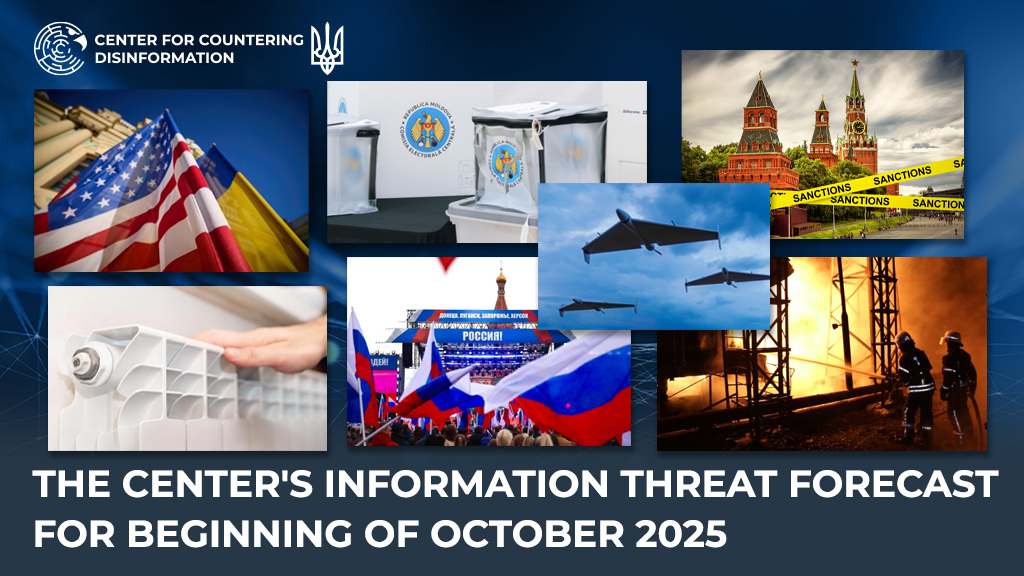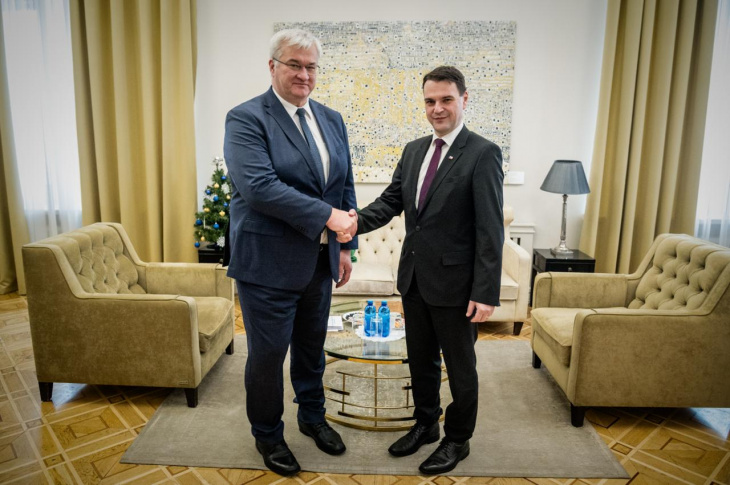As October begins, analysts of the Countering Desinformation Center are warning of a surge in Russian and pro-Kremlin disinformation campaigns across multiple fronts, targeting Ukraine, Europe, and the West.
Ukraine–U.S. Relations in the Spotlight
Following recent talks in New York, Kremlin-linked media are expected to push narratives portraying the U.S. as retreating from an active role in resolving the war. Reports may claim Washington is focused solely on arms sales, with no political engagement, and question its ability to guarantee Ukraine’s security. Simultaneously, the messaging could shift blame for continued conflict onto Kyiv and its Western partners, aiming to erode public confidence and pressure the Ukrainian government toward concessions.
Exploiting European Airspace Incidents
Russian media are likely to seize on any airspace violations involving drones or aircraft in Europe. Expected narratives will downplay European concerns, shift responsibility onto Ukraine, and highlight alleged NATO divisions or overreactions. Simultaneously, Russia may portray European defensive measures as provocative, reinforcing a domestic perception of Moscow as surrounded by threats.
Moldovan Elections Under Fire
After President Maia Sandu’s party won a decisive parliamentary victory, Russian propaganda is anticipated to intensify efforts to discredit the results. Claims may focus on alleged vote manipulation, discrimination against Russian speakers, and European interference, aiming to stir societal divisions and undermine Moldova’s pro-European trajectory.
Anniversary Propaganda in Occupied Ukrainian Territories
Ahead of the so-called “Reunification Day” marking the annexation of parts of Ukraine, Russian media are expected to promote narratives portraying occupation as benevolent. Campaigns will highlight supposed reconstruction and social improvements, while mass events with coerced participation aim to legitimize Moscow’s control.
Energy Crisis and the “Black Winter” Narrative
With the heating season approaching, Russian propaganda may intensify fears of energy shortages in Ukraine. Infrastructure attacks will be framed as evidence of government incompetence, fueling panic and undermining trust in Ukrainian authorities, despite the real causes being Russian missile and drone strikes.
Questioning Ukrainian Government Legitimacy
Ahead of postponed local elections on October 29, Russian outlets are likely to amplify claims about the alleged illegitimacy of Ukraine’s government, focusing on central-local tensions and pushing Western partners to pressure Kyiv, all in an effort to weaken internal unity.
Justifying Strikes on Energy Infrastructure
Russian media and officials are expected to frame attacks on Ukrainian energy facilities as defensive or retaliatory, portraying Ukraine as responsible for civilian hardships and downplaying international condemnation.
Hybrid Influence in the Czech Republic
Ahead of parliamentary elections on October 3-4, Kremlin-linked campaigns may aim to destabilize the Czech political landscape, discredit pro-European parties, and amplify anti-Ukraine or anti-EU narratives. Disinformation could target electoral integrity, societal cohesion, and public trust in institutions.
Economic Resilience Narratives
Russian propaganda will continue to depict Western sanctions as ineffective, emphasizing partnerships with China and India to portray Moscow as resilient. This messaging seeks to bolster domestic morale while downplaying real economic challenges.
Space Program Messaging
The Kremlin is also expected to promote its space program achievements, including the launch of a Belarusian female astronaut, as evidence of national strength. At the same time, narratives will exaggerate Western space threats and downplay technical issues, reinforcing the image of Russia as a technologically advanced global actor.
Overall, analysts warn that the coming weeks will see a coordinated, multi-front effort by Russian state and aligned media to shape perceptions, shift blame, and undermine confidence in Ukraine, Europe, and Western institutions.






















